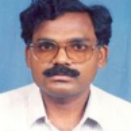
R. B. Patel
Work place: G. B. Pant Engineering College, Pauri Garhwal, Uttarakhand, INDIA
E-mail: patel_r_b@yahoo.com
Website:
Research Interests: Distributed Computing, Computing Platform, Mathematics of Computing
Biography
Dr. R. B. Patel (1966) received PhD from IIT Roorkee in Computer Science & Engineering, PDF from Highest Institute of Education, Science & Technology (HIEST), Athens, Greece, MS (Software Systems) from BITS Pilani and B. E. in Computer Engineering from M. M. M. Engineering College, Gorakhpur, UP. Dr. Patel is in teaching and Research & Development since 1991. He has supervised 50 M. Tech, 10 M. Phil and 10 PhD Thesis. He has published more than 130 research papers in International/National Journals and Refereed International Conferences. System and Method for Reliable and Flexible Mobile Agent Computing and System, Method, & Computer Program for Routing Data in Wireless Sensor Network are two patents in the credit of Dr. Patel. His research interests are in Mobile & Distributed Computing, Mobile Agent Security and Fault Tolerance, development infrastructure for mobile & Peerto-Peer computing, Device and Computation Management, Cluster Computing, Sensor Networks.
Author Articles
Self Organized Replica Overlay Scheme for P2P Networks
By Shashi Bhushan Mayank Dave R. B. Patel
DOI: https://doi.org/10.5815/ijcnis.2012.10.02, Pub. Date: 8 Sep. 2012
Peer-to-Peer (P2P) systems are widely used for data sharing applications in an autonomous and decentralized mode. P2P systems are suitable for large-scale distributed environments in which nodes can share resources other than data such as computing power, memory and network bandwidth. Some of important parameters that affect the performance of P2P systems are peer availability, data availability, network overhead, overlay structure, churn rate, and data access time.
In this paper a self organized replica overlay scheme "Improved Hierarchical Quorum Consensus" (IHQC) for P2P systems is proposed. This scheme organizes replicas in a Self Organized Hierarchical Logical Structure (SOHLS) that has special properties. The scheme improves performance of the system by reducing search time to form read/write quorums, reducing probability of accessing stale data, improving degree of intersection among consecutive quorums and reducing network overhead. This scheme is highly fault tolerant (tolerate up to faults) due to replication of data and inherits the best property of Read-One-Write-All (ROWA) protocol in a dynamic environment of P2P network. The architecture for IHQC is also proposed for implementing the scheme that supports improved performance of P2P systems. This scheme also maximizes the degree of intersection set of read and write quorums; hence, having higher probability to get updated data as compared to all other schemes. The mathematical correctness of the scheme is also presented in the paper. The results of simulation study of the proposed scheme also support and verify its better performance than Random and Hierarchical Quorum Scheme.
Other Articles
Subscribe to receive issue release notifications and newsletters from MECS Press journals